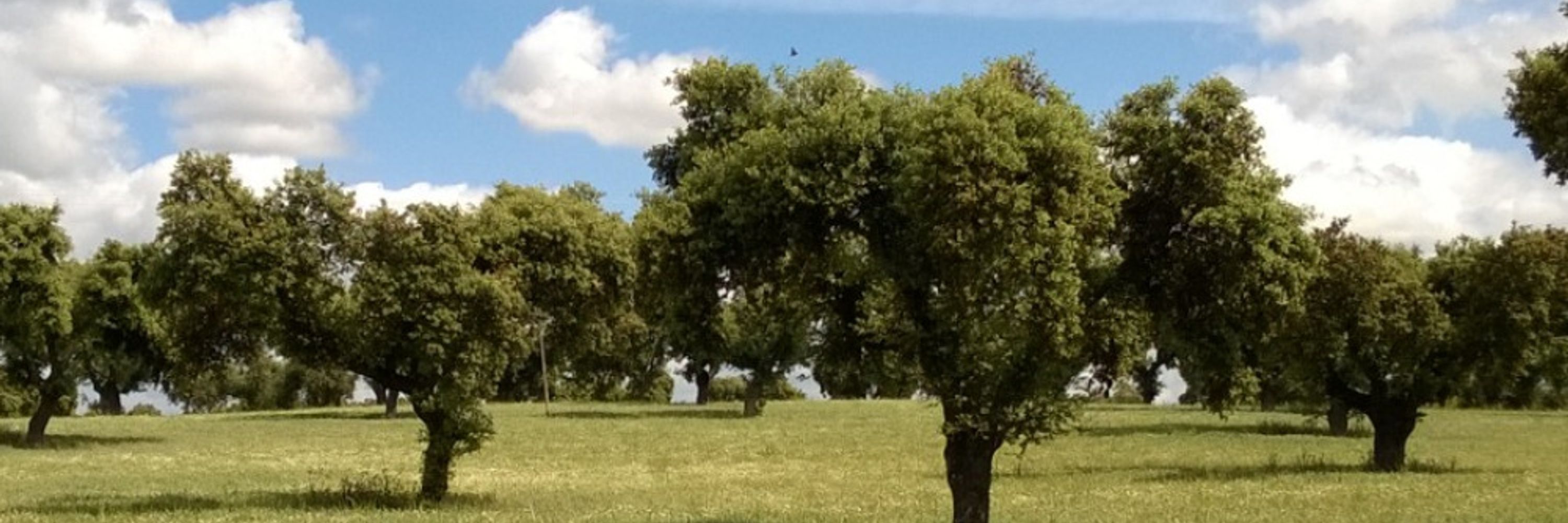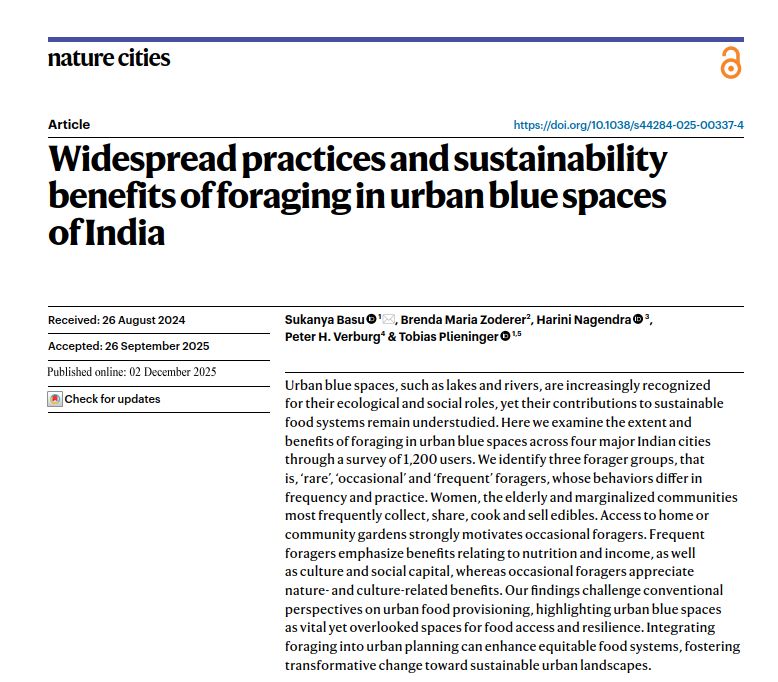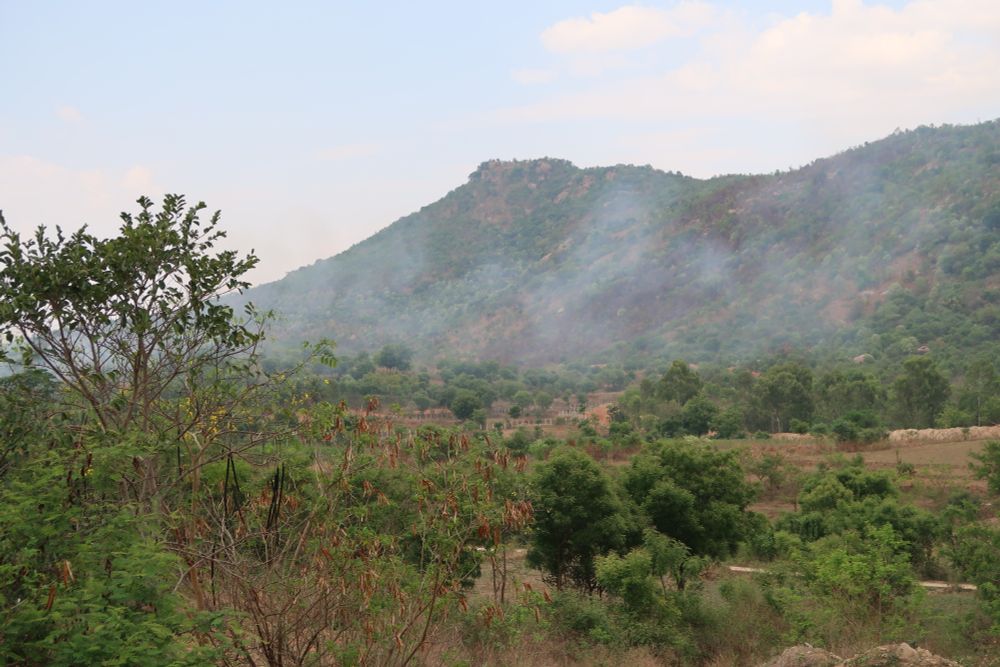
Professor of Social-Ecological Interactions, University of Kassel & University of Göttingen. Rural landscapes | Ecosystem services | Sustainability. PersOp
www.uni-kassel.de/go/plieninger

📍Sense of place: doi.org/10.1080/2639...
🌱Degradation/restoration: doi.org/10.1016/j.fo...
🌿Human-nature-connections: doi.org/10.1111/rec....
Reposted by Sandra Dullau




🌱🐄Biocultural diversity & livestock: doi.org/10.1016/j.an...
🌿🌍High nature value farming: doi.org/10.1002/pan3...
🏷️🐑Geographic Indication: doi.org/10.1080/1747...
🏜️🤝Pastoral values: doi.org/10.1016/j.la...


🔗 doi.org/10.1007/s132...

🔗 doi.org/10.1007/s132...

Reposted by Tobías Plieninger

Mehr: www.uni-goettingen.de/de/3240.html...

doi.org/10.1111/rec....
www.uni-kassel.de/uni/aktuelle...


✨Positive restoration stories
🎨Cultural values
🏺Heritage sites/products
🌾Multifunctional landscapes
💡Shared ideas platform
doi.org/10.1111/rec....
Reposted by Tobías Plieninger

Researchers surveyed 1,200 people in 4 cities in India and found foraging to be widespread, providing valuable food, income, culture, connections: www.uni-goettingen.de/en/3240.html...
#NatureCities: doi.org/10.1038/s442...

Surveying 1,200 people in 4 cities, we found that lakes & wetlands provide food, income, culture & social ties.
👉 Recognizing foraging can support more equitable, resilient urban food systems.
🔗 doi.org/10.1038/s442...
Reposted by Carly D. Ziter

🔗 www.britishecologicalsociety.org/content/appl...


🐾 Learning
🏞️ Heritage
🪴 Care
🧑🌾 Multifunctionality
👭 Collaboration
Revealing such narratives can build new alliances & place PAs at the heart of society.
doi.org/10.1002/pan3...
Reposted by Garry Peterson

Reposted by Tobías Plieninger

A new Research Paper focusing on Bannerghatta National Park, India, Open Access as FirstView in #EnvironmentalConservation
www.cambridge.org/core/journal...
Image @plieningerlab.bsky.social




🔗 doi.org/10.1017/S037...
Reposted by Tobías Plieninger

A new Research Paper as FirstView in #EnvironmentalConservation
www.cambridge.org/core/journal...
#India #urbanization #conservation
Image by Prof. Tobias Plieninger @plieningerlab.bsky.social

We show how strengthening connections between people, nature & governance helps conservation adapt to crises.
The future of conservation is in cultivating resilient social-ecological relationships. #OpenAccess.
🔗 doi.org/10.1093/bios...

🔗 doi.org/10.14512/gai...
Reposted by Helmut Haberl, Tobías Plieninger, Daniel Müller , and 14 more Helmut Haberl, Tobías Plieninger, Daniel Müller, Helmut Hillebrand, Ana Bastos, Wolfgang Crämer, Dominik Wiedenhofer, Charlotte Streck, Panayiotis G. Dimitrakopoulos, Daniel Huppmann, Ilona M. Otto, Christian Hof, Malte Jochum, Elena D. Concepción, Susanne Lachmuth, Caroline Greiser, Karl Andraczek


"Climate Neutrality Is Europe’s Greatest Economic Opportunity”.
Ahead of the European Council meeting on 23.10.2025,
2,178 scientists urge EU Heads of States & Governments to take ambitious decisions for the 2040 targets.
zenodo.org/records/1739...

Big congrats to Gaelle Ndayizeye on her 1st PhD paper!
👉 doi.org/10.1111/rec....


